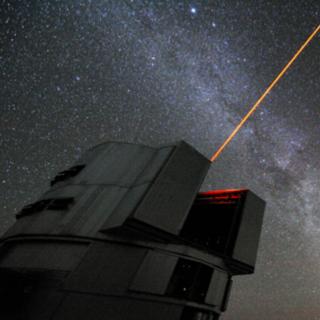Bibcode
Casamiquela, L.; Blanco-Cuaresma, S.; Carrera, R.; Balaguer-Núñez, L.; Jordi, C.; Anders, F.; Chiappini, C.; Carbajo-Hijarrubia, J.; Aguado, D. S.; del Pino, A.; Díaz-Pérez, L.; Gallart, C.; Pancino, E.
Referencia bibliográfica
Monthly Notices of the Royal Astronomical Society
Fecha de publicación:
12
2019
Número de citas
45
Número de citas referidas
44
Descripción
The study of open-cluster chemical abundances provides insights on stellar nucleosynthesis processes and on Galactic chemo-dynamical evolution. In this paper we present an extended abundance analysis of 10 species (Fe, Ni, Cr, V, Sc, Si, Ca, Ti, Mg, O) for red giant stars in 18 OCCASO clusters. This represents a homogeneous sample regarding the instrument features, method, line list and solar abundances from confirmed member stars. We perform an extensive comparison with previous results in the literature, and in particular with the Gaia FGK Benchmark stars Arcturus and μ-Leo. We investigate the dependence of [X/Fe] with metallicity, Galactocentric radius (6.5 kpc < RGC < 11 kpc), age (0.3 Gyr < Age < 10 Gyr), and height above the plane (|z| < 1000 pc). We discuss the observational results in the chemo-dynamical framework, and the radial migration impact when comparing with chemical evolution models. We also use APOGEE DR14 data to investigate the differences between the abundance trends in RGC and |z| obtained for clusters and for field stars.
Proyectos relacionados

Evolución Galáctica en el Grupo Local
La formación y evolución de galaxias es un problema fundamental en Astrofísica. Su estudio requiere “viajar atrás en el tiempo”, para lo cual hay dos enfoques complementarios. El mas extendido consiste en analizar las propiedades de las galaxias a diferentes distancias cosmológicas. Nuestro equipo se concentra en el otro enfoque, denominado
Emma
Fernández Alvar